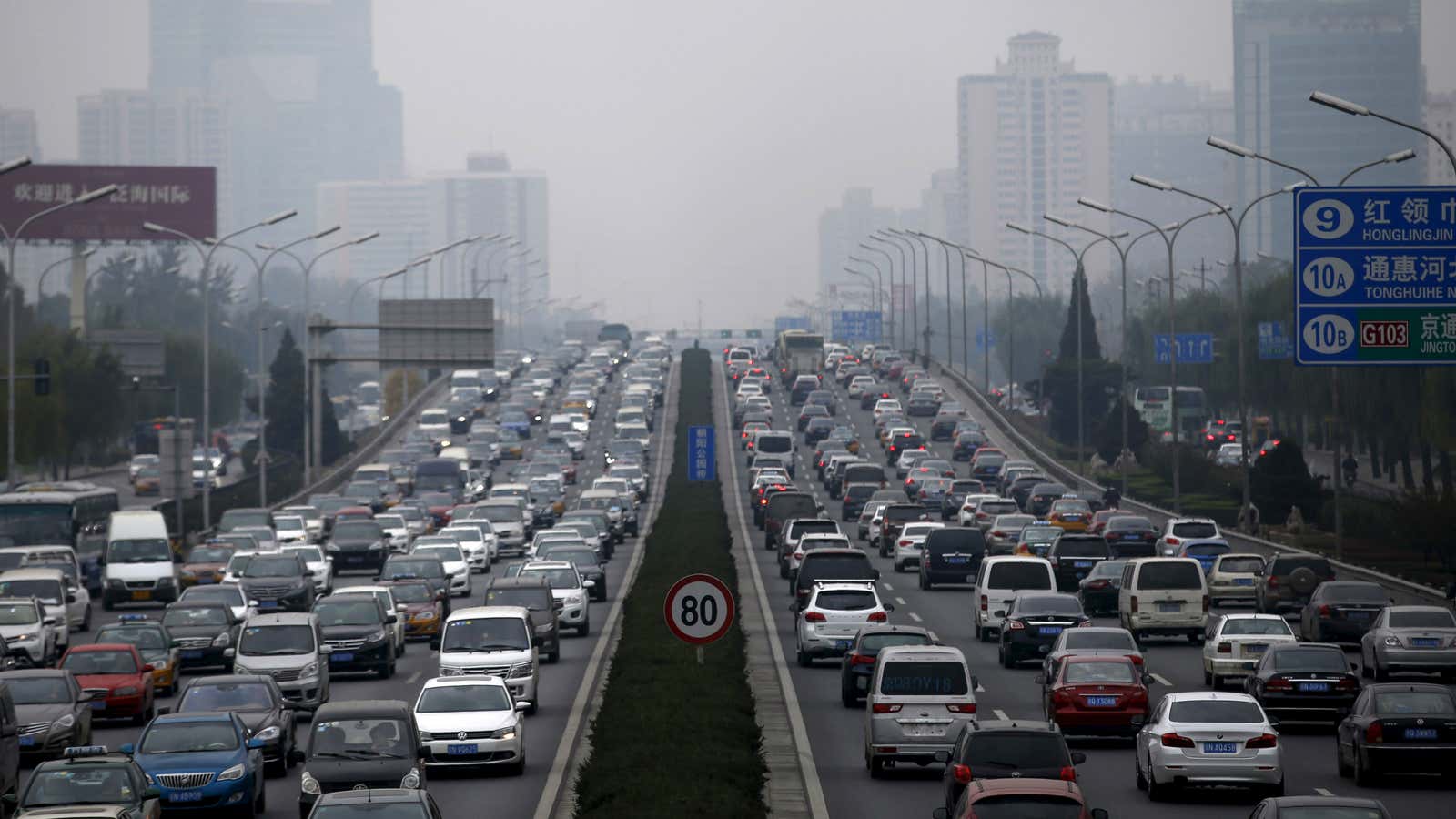Executives from Uber often say the company wants to end car ownership. So it’s no surprise that Uber is investing heavily in China—where universal car ownership never existed, and probably never will.
China’s huge population means that high car ownership rates would be an impossible burden for China’s cities, Li Zijian, head of international strategy at Didi Chuxing, Uber’s main rival in China, explained at the the Converge technology conference hosted by the Wall Street Journal and F.ounders in Hong Kong on Friday (June 3).
“Car penetration in Beijing, one of the largest cities in China, is about 16 or 17 percent, and you can already see that streets are already clogged and highly congested,” says Li. “In the [United] States the number is over 50%. So there’s no way that car ownership in China will ever be as big as the States.”
Li added that while owning and maintaining a car in China is about as expensive as it is in the US, lower China labor costs make ride-hailing more affordable there than in the US.
“If you drive a car in the United States, it will cost you anywhere between $7 to $11 per day if you drive yourself,” Li said. The number includes the car’s depreciation, gas, parking, maintenance, and accrues regardless of whether or not someone drives it every day. “That’s about the same as in China, because cars in China are not cheaper.”
“In the States, if you take a rideshare, it actually costs more, because of labor. The cost of the driver is actually higher than [operating] the car.”
He estimates you pay about $15 or $16 for a hailed car fare in the US. But in China, if you take a Didi ride, cheap labor costs help fares stay lower—a ride of the same distance costs between $3.50 dollars and $6.
“These are the economic forces behind the tremendous growth” of ride-hailing, he said. Didi said it now logs 14 million rides a day.
People who can afford a car might opt not to buy one, because ride-hailing is cheaper than car ownership Li believes. Other factors, like restrictions on license plate ownership and urban density, will also help popularize ride-hailing.
In rich countries, Uber and its peers compete not just against taxis, but cars that sit in the garage. In China, they have more room for growth.
Didi’s main competitor Uber is certainly banking on it—the company is losing $1 billion dollars a year in China and lagging far behind. Estimates from the companies themselves place Uber’s market share in China somewhere between 10% and 30%, with Didi taking the rest.
